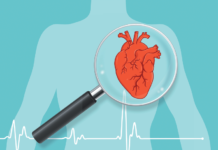A1C – Definition – Also called hemoglobin A1C. Reflects average blood sugar (glucose) over the past three months or so. Relevance – The American Diabetes Association recommends an A1C of 7% or less for non-pregnant adults with diabetes to reduce the risk of adverse health effects over the long term.
ACE inhibitors – Definition – Angiotensin-converting enzyme ACE inhibitors are drugs used to treat heart disease and problems with blood vessels or kidneys by decreasing blood pressure. Relevance – ACE inhibitors are also used to treat patients who have experienced heart failure and are also used to treat hypertension, stroke and diabetes.
Acesulfame K – Definition – Acesulfame K is an artificial sweetener that is 150-200 times sweeter than sugar and approved for use by the FDA in 1988. Relevance – Acesulfame K is heat stable and therefore readily usable in cooking and baking.
Acetaminophen – Definition – A pain relief medication that is used to treat mild to moderate pain and fever, but unlike aspirin and related drugs, it’s not irritating to the stomach. Relevance – Acetaminophen can cause serious liver damage if more than directed is used. Some people unknowingly consume excess amounts because acetaminophen is also found in medicines that treat allergy, cough, colds, flu and sleeplessness.
Acetylcholine – Definition – Acetylcholine is a neurotransmitter found in the synapse between nerve and muscle cells. Relevance – Decreased acetylcholine is linked to Alzheimer’s disease and neuromuscular autoimmune diseases; it is highly involved in cognition, learning and memory.
Acetylcholinesterase – Definition – Acetylcholinesterase is an enzyme present in the nervous system, that cleaves the neurotransmitter acetylcholine in the synapse between nerve cells and muscle cells. Relevance – When a signal is passed through the synapse between a nerve cell and a muscle cell, acetylcholine is broken down into acetic acid and choline, which stops the signal and allows the neurotransmitter to rebuild in preparation for another signal.
Added sugars – Definition – Sugars added to products by food manufacturers (rather than naturally occurring, such as in milk or whole fruit). Relevance – Higher intake of added sugars is associated with increased rates of heart disease and metabolic syndrome (a cluster of risk factors for heart disease, diabetes and stroke).
Adiponectin – Definition – A hormone produced by fat cells that improves the body’s responsiveness to insulin, helping reduce risk of type 2 diabetes. Relevance – Obesity is associated with decreased secretion of adiponectin, which is the opposite of what you want. Higher levels of adiponectin are protective.
ALA – Definition – Alpha-linolenic acid (ALA) is a short-chain omega-3 fatty acid in the diet and is present in walnuts, canola oil, and some other plant oils. Relevance – ALA is found in plants, unlike the other main omega-3 fats in the diet, EPA and DHA; and is believed to be equally beneficial to health, although evidence is not conclusive.
Allium Vegetables – Definition – Allium vegetables are those belonging to the genus Allium, comprised of more than 500 species and historically used to treat cardiovascular disease. Relevance – Allium vegetables include garlic, leeks, onions, chives and scallions and possess antimicrobial properties; recent research has focused on their potentially anticancerous effects.
Alternate-day fasting – Definition – Also called every-other-day fasting since people continually alternate between fasting one day and eating normally the next day. Most often, people practice this as a modified form of fasting rather than a complete fast, since they consume 25% or less of their daily calorie needs (such as 500 calories a day) during a fast day. Relevance – Preliminary trials suggest this approach may promote weight loss similar to a traditional reduced-calorie diet, but it may be difficult for some people to adhere to long term.
Angina pectoris – Definition – Chest pain or discomfort due to coronary heart disease. It occurs when the heart muscle doesn’t get as much blood as it needs, usually because of narrowing or blockage of one or more of the heart’s arteries. It’s sometimes called stable angina. Relevance – This type of chest pain is typically relieved with rest and/or the medication nitroglycerin, which relaxes the heart’s arteries, improving the heart’s blood supply.
Anthocyanins – Definition – Anthocyanins are pigments belonging to the flavonoid group of phytochemicals that give blue, purple, and red colors to some fruits, vegetables, and flowers. Relevance – Anthocyanins are found in berries and wine, recognizable for their vivid red to blue coloring, and have been shown to have positive effects on visual acuity, cancer, heart disease, and age-related neurodegenerative diseases.
Antibodies – Definition – Antibodies are proteins produced by the body’s immune system in response to the presence of potentially dangerous antigens, like bacteria, viruses and parasites; antibodies are unique and each is specified to protect the body from one particular antigen. Relevance – Sometimes the body produces antibodies if healthy tissue is erroneously flagged as harmful by the immune system; this results in an autoimmune disorder.
Antioxidant – Definition – Antioxidants are substances found in many fruits, vegetables, nuts and grains that may protect cells against damage from free radicals. Examples include carotenoids, Vitamin E, Vitamin C, and selenium. Relevance – Antioxidants may be protective against damage from free radicals like tobacco smoke, radiation, and food breakdown byproducts, which may play a role in cancer and heart disease risk.
AREDS – Definition – An acronym for Age-Related Eye Disease Study, which is a large, nationwide placebo-controlled trial that showed supplementation with certain vitamins and minerals decreased risk of advanced age-related macular degeneration. The study was followed by the AREDS2 study, in which lutein and zeaxanthin were used in the supplement instead of beta carotene and were found to be just as effective (and safer for smokers). Relevance – If you have age-related macular degeneration, check with your eye doctor to determine if an AREDS2 supplement would be appropriate for you.
Aronia berries – Definition – Dark purple berries also known as chokeberries because they have a bitter/tart flavor. They’re rich in phytochemicals, including anthocyanins. Relevance – They’re generally preferred as an ingredient in recipes rather than on their own. Sold at some farmers’ markets.
Ascorbic Acid – Definition – Ascorbic acid is another name for vitamin C which was historically used to treat scurvy, or vitamin C deficiency.
Aspartame – Definition – Aspartame is an artificial sweetener that is 220 times sweeter than sugar and approved for use by the FDA. Relevance – Although there are claims that aspartame is carcinogenic and causes many other adverse health effects, it is well studied and no major side effects have been found.
Atrial fibrillation – Definition – An abnormal firing of electrical impulses that causes the atria (the top chambers in the heart) to quiver (or fibrillate). Relevance – Atrial fibrillation can lead to blood clots, stroke, heart failure and other heart-related complications.
























